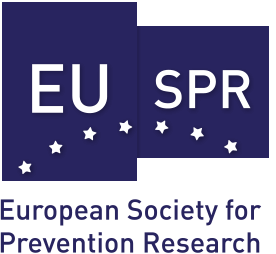Law Enforcement Officers (LEO) LEOs have an important role to play in community-based and environmental (situational) prevention, particularly in nightlife
It is important, though, that their approach focuses on effective behavioural change techniques rather than simply providing information about the harms of substance use. This requires adequate and continued training of LEOs together with the convention prevention workforce to ensure they are able to use behavioural change techniques effectively.
- LEO’s role in the prevention of substance use varies depending on the culture of each country. In some countries, they are the only workforce involved in prevention, while in others they are part of a larger prevention workforce. Awareness of the professional culture of law enforcement in each culture is important in order to understand their role in prevention and how they can be part of the prevention workforce. This will help them understand when and how to intervene in prevention efforts.
- LEO are important for creating safer environments through environmental prevention measures such as upholding youth protection laws, monitoring physical aspects of night and social life, or collaborating with commercial and public actors. They are sometimes better placed to target people’s contextual and environmental factors than conventional prevention workers.
- Law enforcement officers (LEOs) can make a difference in issues related to substance use and violence in nightlife by regular visits to high-risk venues, carrying out age verification checks, enforcing responsible serving, and cooperating with prevention workers, businesses, and local administrations. Coalitions between LEOs, prevention workers, nightlife businesses, and local administrations are key for successful environmental prevention.
- LEOs can make essential contributions to the prevention of problem behaviour in communities and school yards through enforcement of existing youth curfew hours, control of alcohol sales to minors, presence in school surroundings to reduce the possibilities for violence and drug-dealing, and environmental scans to identify hot spots for problems. They can also help to set up safe and clean playing and leisure areas, and leisure time opportunities.
Making the respective changes to prevention systems requires training for both decision- and opinion-makers, as well as frontline practitioners, and improved inter-sectorial cooperation.
This can be achieved through the EU project Frontline-Politeia, which provides blended (practical, e-learning and face-to-face) forms of training and learning. Cooperation between different professional sectors should be based on understanding each other’s roles, gaining knowledge about each other’s professions, respecting different focuses and sharing the same goals. Through collaboration and shared learning, LEOs and prevention professionals from other sectors can create safer environments, reduce the risk of substance use and violence, and improve the effectiveness of local prevention strategies. The Politeia project seeks to bring these professionals together to achieve this goal.
Complete version
[EN] Law enforcement has to be part of the prevention workforce. The question is: how and where?
